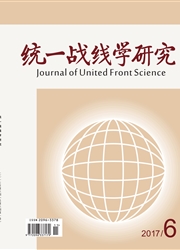

 中文摘要:
中文摘要:
社群主义人权观有其悠久的历史渊源,是对20世纪后期西方各国国家职能弱化和社会不公平加剧进行理论反思的产物。它强调权利的社会性和社群的人权主体地位,在权利与责任的关系方面强调共同的善,以求在个人和集体、权利与责任之间寻求平衡,重构个人与群体的关系。社群主义人权观弥补了自由主义人权观的不足,引发了人权理论不同范式间的对话,成为第三代人权理论的重要铺垫,为发展中国家的人权道路提供了启示。
 英文摘要:
英文摘要:
Ideological roots of communitarianism date back to ancient western philosophy, but, merely in the late of the 20th century, as state capacity declines and social inequality in western countries deteriorates continuously, its ideas con- cerning human rights take shape. Communitarian understandings of human rights stress the peculiar social contexts from which rights derive and the significance of public good over individual rights, and also insist that community should be treated as agents for human rights, with an ambition to reconstruct the relationship between individual and community by exploring the theoretical balances between individuals and communities, rights and responsibilities respectively. Communitarian understandings of human rights may contribute to what the liberal perspectives miss in human rights arguments and evoke theoretical interactions and exchanges among different paradigms, offering alternatives for developing countries in their endeavors to promote human rights achievements.
 同期刊论文项目
同期刊论文项目
 同项目期刊论文
同项目期刊论文
 期刊信息
期刊信息
